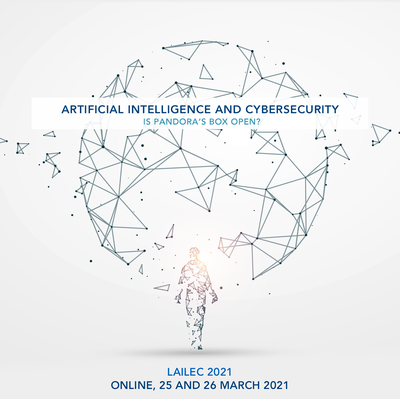Stay Connected With RISC-V
We send occasional news about RISC-V technical progress, news, and events.


Panel Discussion: AI and Cybersecurity Transparency in the (European) Cloud: GAIA-X and beyond
Join the panel discussion with Calista Redmond, Mariane ter Veen, INNOPAY and Bruce Schneier
14:45 – 15:45 CET
How much transparency is enough and how much is fair? Are open source supply chains the solution, at least for critical components? Should we leave cybersecurity transparency to industry self-governance, or shall we act with top-down regulation? To what extent does the voluntary certification regime enshrined in the EU Cybersecurity Act meet the challenges of transparency in the AI supply chain?
Event details:
Cybersecurity is the digital anchor of the information society. Maintaining continuously high levels of security and resilience are essential for the sustained operation of our healthcare, transport, manufacturing, and energy supply services. Back in the days, the main concern of a CISO, where that role even existed, was how to secure access to one’s corporate network and how to implement robust access controls for individual terminals. Most of the time, the threat landscape looked predictable and the risks – manageable.
Fast forward twenty years and we see how the exponential growth of interconnected, interdependent and distributed smart systems and embedded devices in practically every area of life has extended the attack surface beyond imaginable. Black box artificial intelligence has now added a new dimension into this stack of problems. At the same time, many see AI as a security solution itself in that it would be capable of defending network resources autonomously and efficiently. However, one cannot but ask, ‘Have we opened Pandora’s Box yet?’.
In this year’s (online) edition of the Leuven AI Law & Ethics Conference, we look at how AI and (cyber)security interplay, where they go hand in hand and where they collide. The conference aims to discuss the role of transparency, information sharing and resilience in the data and machine learning supply chains. It will look at the phenomenon of automated platform censorship and the implications of fake news on (political) security. It will explore to what extent companies would be willing to devise collaborative mitigation strategies against competing interests over valuable data assets. It will ponder how vulnerability disclosure and the policy objective of transparency affect the exercising of intellectual property rights. A dedicated panel will explore the complexity of regulating AI-driven technology in the healthcare sector through the lens of cybersecurity and safety requirements. We also offer sessions focusing on technological sovereignty and questions of cybersecurity transparency through the use case of cloud computing and virtualisation technologies as the backbone of modern computing infrastructure. Finally, we would like to open a discussion on the implications of long-term security solutions for data protection law.
This year’s edition is unusual, much like everything else. We have therefore made some changes to LAILEC’s traditional format and structure, mainly to reduce screen fatigue and make the event more enjoyable and useful to our attendees. This means that in 2021 LAILEC is going to be an online-only event spread across two afternoons, respectively, on the 25th and 26th March. The positive side to this is that we can offer the conference pass free of charge, so anyone is invited to register and attend. You can either register for the entire conference or choose individual sessions. Another change is that we also have decided not to announce a call for papers, despite the excellent submissions and speakers we had last year. Our hope is to resume this newly established and highly praised element in our event next year.
We send occasional news about RISC-V technical progress, news, and events.